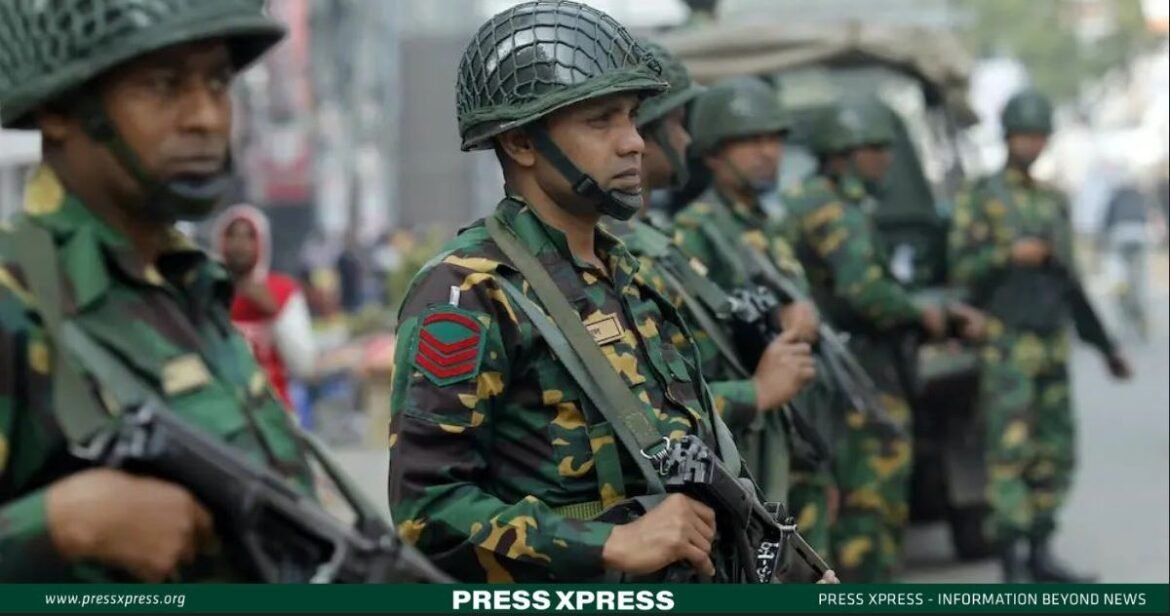With the 12th Jatiya Sangsad election only five weeks away, the country’s political parties are passing busy days making preparations for the election. The Election Commission also is adopting various measures to hold the upcoming national polls in a free, fair, and peaceful manner.
In a pivotal move towards fortifying the democratic process, Election Commissioner (EC) Rasheda Sultana recently disclosed that the government is contemplating deploying the army during the upcoming election.
You Can Also Read: BGB and BSF Intensify Vigilance Ahead of Polls!
She disclosed the information during an interaction with reporters at the Rajshahi District Shilpakala Academy auditorium.
A Considered Approach by EC
Drawing on the precedent of army deployment in past national elections, she underscored the potential for a similar initiative to ensure free and peaceful elections. Despite this consideration, EC Rasheda Sultana clarified that a final decision is pending, with the ultimate choice depending on the evolving situation.
EC Rasheda Sultana emphasized that the final decision to deploy the army depends on a thorough assessment of the prevailing situation. This analytical approach underscores the government’s commitment to tailoring its strategies to the dynamic landscape.
In a move promoting inclusivity, EC Rasheda Sultana invited the Bangladesh Nationalist Party (BNP) to participate in the electoral process. Emphasizing the importance of adhering to the stipulated timeline, the commissioner conveyed a subtle yet crucial message, urging all political entities to operate within the designated time margins. This strategic call aims to ensure a well-organized and time-bound electoral schedule.
EC’s Focus on Candidate Responsibility
The commissioner said the commission refrains from dictating which parties partake in the elections, emphasizing that such decisions are the prerogative of the respective political parties. EC Rasheda Sultana further emphasized the collaborative effort between the commission and candidates. She stressed that candidates bear the responsibility of mobilizing voters to polling booths, underlining the decentralized nature of this essential democratic process.
Commission’s Pledge for a Transparent Election
Affirming the commission’s commitment to facilitating a smooth electoral process, Rasheda Sultana articulated concrete measures to ensure unobstructed voter access to polling stations. The commission is actively working towards fostering an environment conducive to a free, fair, and transparent election. This includes issuing directives to field-level in-charges, with a stern warning of legal repercussions for any breach of the code of conduct or attempts to obstruct citizens’ democratic rights.
EC Rasheda Sultana provided clarity on the candidacy protocol, highlighting that sitting MPs elected on party symbols must resign first if they want to take part in the election as independent candidates. This rule, equally applicable to MPs who did not secure their party’s nomination, establishes a clear and standardized framework for candidacy. The adherence to such rules reinforces the commission’s commitment to a structured and rule-bound electoral process.
Global Scrutiny and Transparency
Addressing concerns about transparency and credibility, Rasheda Sultana responded to reporters, emphasizing the historical presence of foreign observers in past elections. She assured that both local and foreign observers, along with journalists, will play a crucial role in monitoring the upcoming election. This collaborative scrutiny aims to enhance transparency, bolstering confidence in the electoral proceedings.
Government’s Positive Initiative
The government’s contemplation of army deployment stands as a testament to its proactive and forward-thinking approach to safeguarding the electoral process. This strategic move, combined with the Election Commission’s multifaceted initiatives, positions Bangladesh on the path to a successful, secure, and well-regulated electoral outcome.
A Unified Effort for Democratic Success
The careful consideration of army deployment, coupled with the Election Commission’s multifaceted approach, reflects a unified effort towards ensuring the success of Bangladesh’s democratic process. The collaborative measures, open invitations, and adherence to rules collectively contribute to fostering an environment conducive to free and fair elections. The government’s responsiveness to potential challenges underscores its dedication to upholding democratic values, painting a positive picture of the nation’s electoral landscape.


